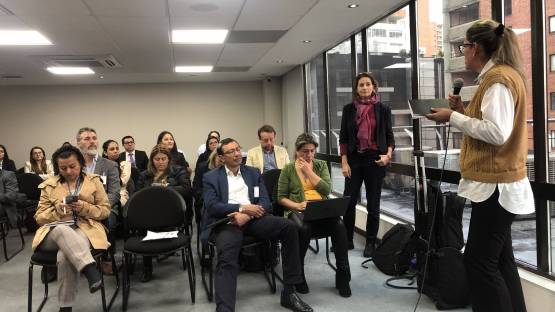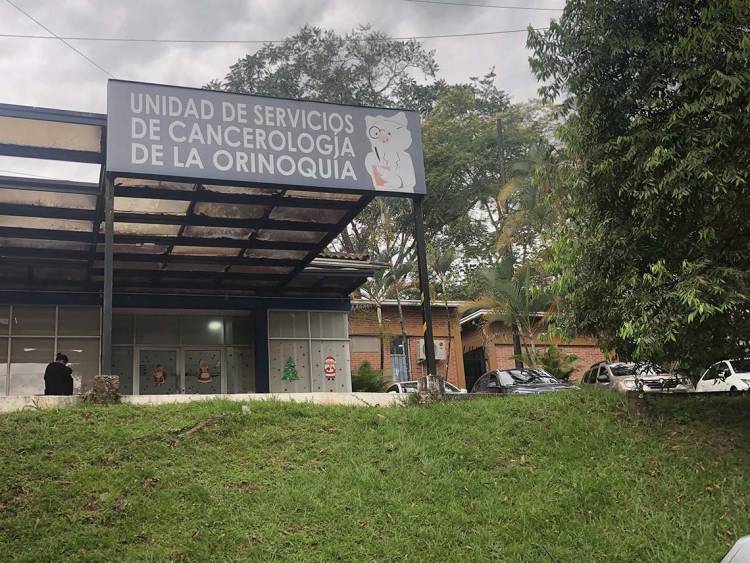Cancer is currently the second leading cause of mortality in Colombia and is a significant public health challenge, placing a high economic burden on the health system. Estimates from the International Agency for Research on Cancer’s (IARC) Global Cancer Observatory indicate that the number of cancer cases and deaths in Colombia will increase by about 40 per cent by 2030 and almost 50 per cent by 2040.
From 21 to 25 November, a team of 11 international experts in all areas of cancer prevention and control arrived in Colombia from various countries in Latin America and the Caribbean, for an imPACT mission coordinated and conducted by the IAEA jointly with the World Health Organization (WHO) and Pan American Health Organization (PAHO).
Travelling 11 000 kilometers within the country, the interdisciplinary team visited eight public and 11 private hospitals, and met with close to 100 local actors to explore existing geographical and economic inequalities in access to cancer care services. After gathering their findings, the team met with the Ministry of Health and Social Protection to share their recommendations. To collect as much evidence and as many testimonies as possible, the review experts also carried out interviews with health provider institutions and public health administrators at both national and local level, using online questionnaires, focus groups, individual interviews and regional workshops covering Colombia’s five regions, from as early as July this year, with the support of 21 national experts appointed by Colombia’s Ministry of Health.
“This review has aimed to identify opportunities to improve quality and has contributed to strengthening the equity of cancer services by providing the information required for action planning and evaluation,” said Nubia Bautista, Deputy Director of Non-Transmissible Diseases in the Ministry of Health and Social Protection. "This imPACT Review has endeavored to capture Colombia's geographical, cultural and socioeconomic diversity. Despite the country’s expansive human and technological capacities, there are communities in Colombia that have limited access to cancer prevention, diagnostic and treatment services and facilities, including ancestral communities, isolated communities and migrant communities.”
The objective of imPACT Reviews is to conduct a participatory analysis of the capacities and needs of a country’s national healthcare system in the areas of cancer prevention and control. Colombia requested its first imPACT Review in 2011, and on the review recommendations launched its Ten-Year Cancer Control Plan in 2012. The November 2022 follow-up imPACT review was launched at the request of the Ministry of Health and Social Protection, which sought a comprehensive assessment of the country’s cancer control capacities by a team of IAEA, WHO and PAHO experts.









